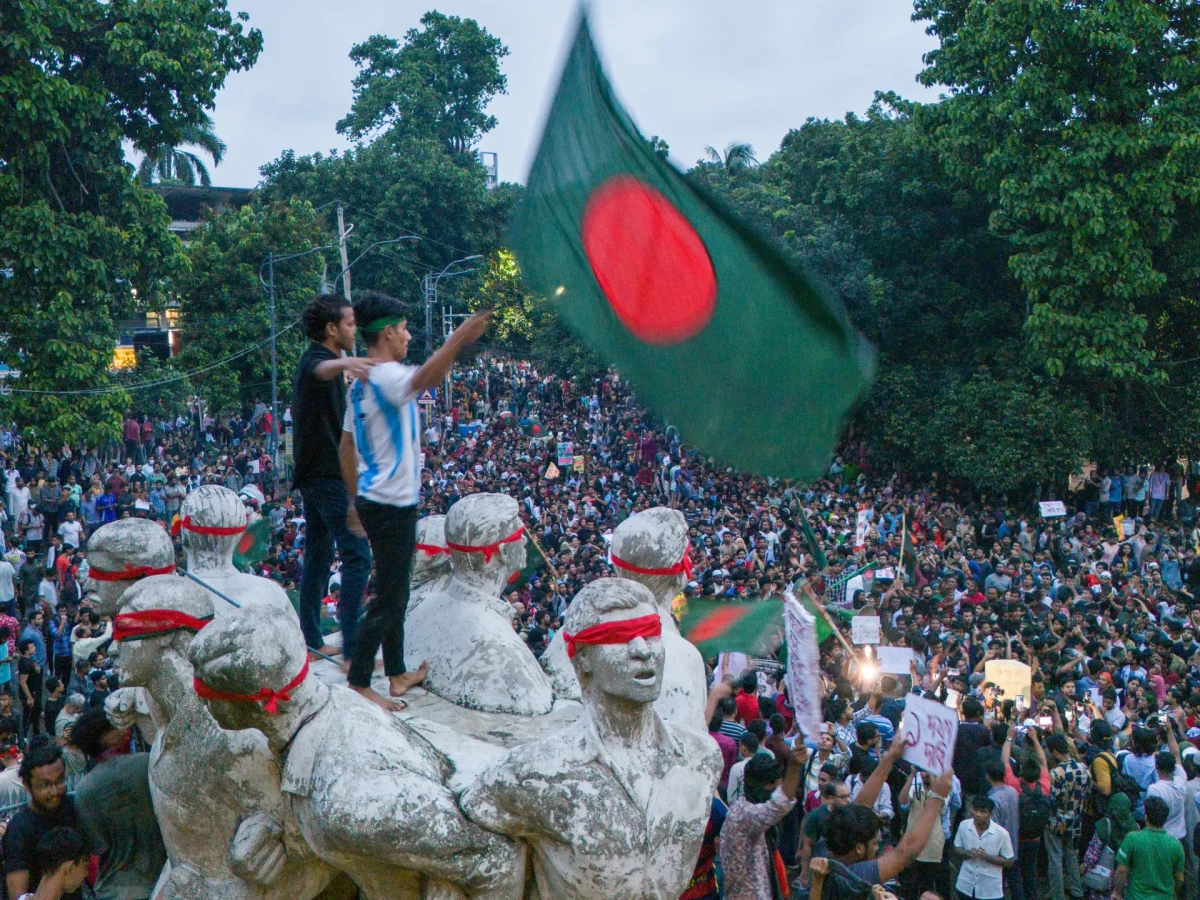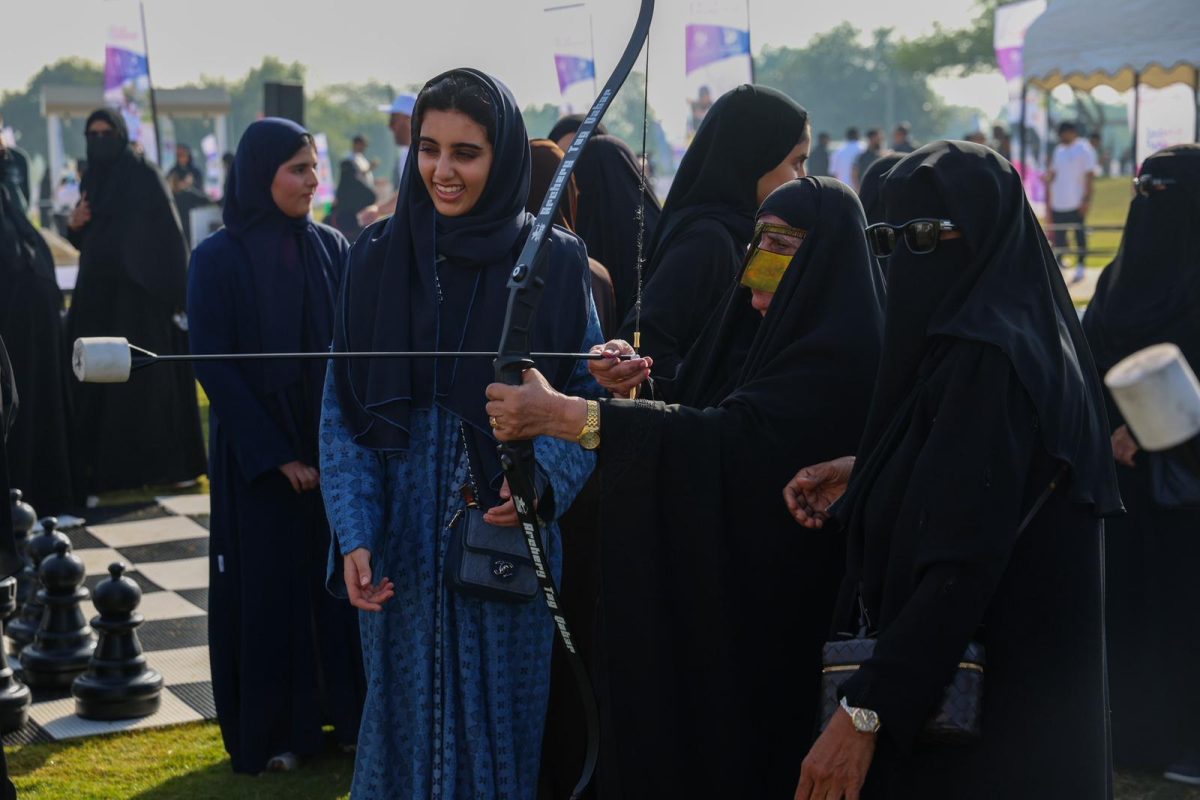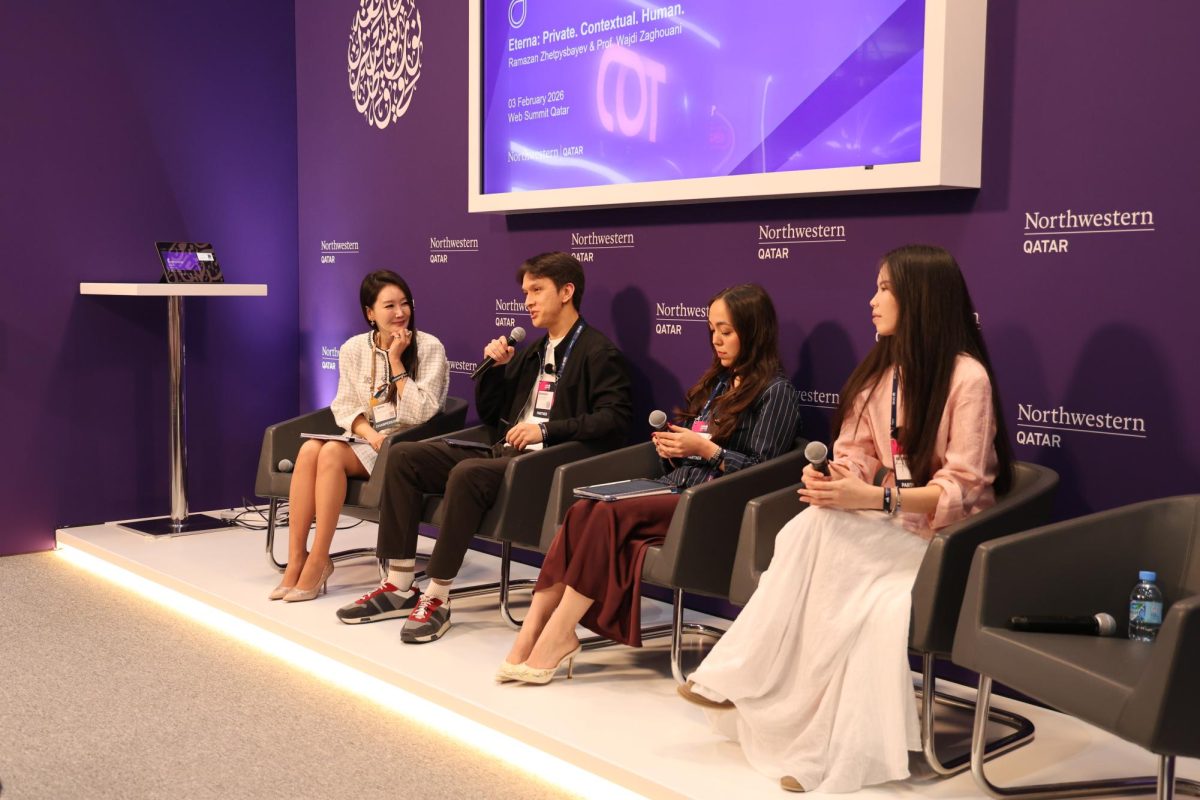In August, Bangladesh underwent a groundbreaking shift in its political landscape. Mass protests against the authoritarian government of Sheikh Hasina culminated in her fleeing the country. The movement, fueled by frustrations over 15 years of corruption and repression, was a symbol of the struggle for liberation to many of its participants.
Farhan Saleh Rafid, a Bangladeshi journalism student at Northwestern University in Qatar (NU-Q), was one of those participants, fully immersed in the protests and their demands for change. Today, seated in the calm and orderly surroundings of Education City in Doha, he finds himself in an unsettling duality: the pride of having contributed to a historical moment and the sense of disconnect from the fight he left behind.
Rafid’s involvement in the protests was significant. “I was there on the ground,” he said. “I went with my father, I communicated with Al Jazeera and other international networks to ensure the protests got coverage. I was part of the history.” He vividly recalls the day Hasina fled, a moment of triumph he shared with thousands of others who had risked everything for justice.
Just days after that pivotal event, Rafid boarded a plane to Qatar. The transition was jarring. “There’s a saying: it’s more difficult to maintain freedom than to earn it,” he reflected. “When I look back at Bangladesh, I see hostilities, instabilities. It’s a given. There was a system for 15 years, a corrupt system. And now, once all of it is suddenly dissolved, there will be a lot of problems.”
Now based in Doha, Rafid works tirelessly to fight misinformation about the movement. He leverages his podcast and social media platforms to challenge narratives attempting to discredit the protests as an Islamist power grab. From his perspective, this work is vital. “I’m doing my best,” he said. “Most of my contributions would have been online anyway, whether I was in Bangladesh or here.”
Yet, despite his digital activism, Rafid cannot shake the feeling of distance from the emotional core of the movement. “Here in Qatar, life is calm, quiet. I sit in a café or walk the streets of Education City, and it feels like another world. But, if I were in a tea stall in Bangladesh, people would be talking even more. There would be heated conversations that would give me more emotional space. In terms of that, I do have some guilt.”
This emotional disconnect is not unique to Rafid. For students from politically turbulent countries who move abroad for education, the gulf between their new lives and the struggles of home can create a complex mix of survivor’s guilt and gratitude. On the one hand, there’s the recognition of privilege—the access to resources, stability, and opportunities that wouldn’t exist back home. On the other, there’s the sense of having left others behind in the fight.
Rafid notes the everyday struggles of life in Bangladesh that are absent in Qatar. “In Bangladesh, we have scheduled power outages because the government can’t meet the demand. Imagine not having electricity for six or seven hours a day here in Qatar; [here] people don’t even know what that is.”
In Qatar, Rafid has access to state-of-the-art equipment and renowned professors willing to collaborate. In Bangladesh, young content creators face a lot of challenges: low-quality equipment, high rental costs, and the constant threat of government persecution. “If someone wants to make a podcast in Bangladesh, they don’t just need a good camera—they need courage,” he said, referring to the case of Mahmudur Rahman, a journalist and the editor of Amar Desh, jailed on false charges even after the fall of Hasina’s government.
“I don’t feel guilt in the sense that I’m not contributing,” Rafid added. “But there’s always this fear of missing out, this feeling that my presence on the ground would have added something intangible to the reform.”
Rafid, however, finds comfort in the idea that privilege can be a tool for change. “Being here means I have the resources and freedom to amplify the voices of those back home,” he says. “It’s not just about what I can do now, but about the foundation we are building to make a larger impact in the future.”
Still, his reflections on survivor’s guilt serve as a reminder of the emotional complexity of living between two worlds. For those like Rafid, the challenge lies in balancing gratitude for the opportunities they’ve been given with a commitment to the people and causes they’ve left behind.
As Rafid continues his studies in Qatar, his activism persists, driven by a deep connection to his homeland. Farhan’s story is not one of guilt, but of purpose—that even from afar, one can remain an integral part of the fight for justice.







